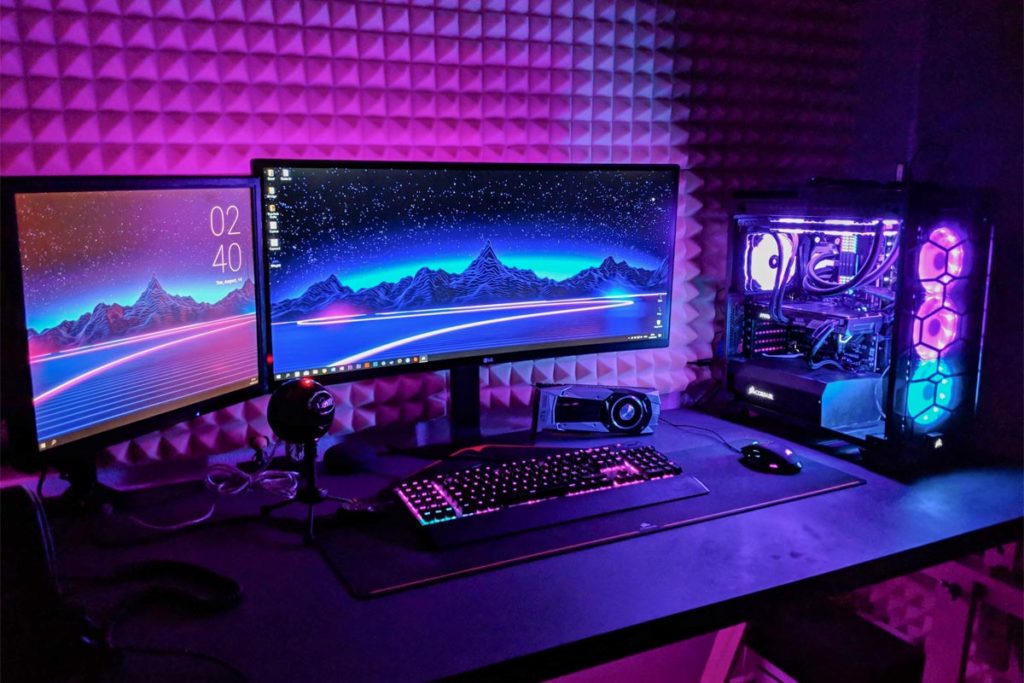Buying a new gaming PC is exciting, whether you construct your own or purchase one of the finest desktops off the shelf. There’s a lot to think about, and the processor is right at the center of that. It will help if you get an excellent processor to gain better performance for a seamless gaming experience. Here are your top options to consider:
Table of Contents
Intel or AMD
The consensus is that AMD has superior CPU technology, thanks to its chipset architecture, which allows manufacturers to have considerably higher core values at prices and heat levels that Intel cannot match.
Historically, Intel was better for playing high-tech games. However, AMD offered a greater advantage in one-core performance and instructions per clock (IPC). The successive Zen designs of AMD have slowly changed these factors to the extent that there is little difference between them in gaming.
The processor is the core of every gaming PC, and compatibility is vital. If you select the wrong processor for your specific needs, your entire experience can be a huge letdown.
Remember, there’s more to do than just going to Intel or AMD to acquire the finest processor. You also need to consider several other features. Also, an i.mx8 kit offers a strong emphasis on performance, power-efficiency and multimedia abilities, and integrated ML/AI capabilities.
Here are the features to consider when choosing the right processor for a Gaming PC:
Caching
A tiny portion of high-speed memory stores and executes often used commands/instructions to accelerate software execution. CPUs feature caches called levels 1, 2, and 3. L1 is the quickest and smallest, while L3 is the slowest and largest.
Cores
Where the core count comes into the picture is if you plan strenuous chores outside the game. For example, if you are playing and broadcasting from the same PC, you will need to take additional loads.
An 8-core and even 16-core processor has additional headroom for gaming and streaming on the same PC with minimum stress on the setup.
CPU Clock Speed
The clock rate of a CPU is the number of cycles that it can perform in a second. It is a fundamental but vital consideration in the selection of an advanced gaming system. Modern CPUs do billions of cycles per second, so their clock speed is measured in gigahertz (GHz).
Threads
This is the number of separate processes that a chip can handle immediately, which would theoretically be similar to the number of cores. Many processors, however, can construct two threads in a single core.
More threads offer greater multitasking and higher performance with heavily threaded applications like video editors and transcoders.
Graphics integrated or not?
If you are playing on a gaming desktop, one of the top graphics cards nowadays may be a little expensive. However, if you can’t have it immediately or build a budget machine without it, you will need a processor offering an integrated GPU to utilize your gaming PC.
Some of the latest integrated graphics can achieve good gaming performance. Even a solid 90 FPS experience is possible, depending on the game.
TDP
In computing, TDP is the maximum amount of heat that a system or chip may generate, and the accompanying cooling system is designed to handle under load conditions.
When it comes to PCs, this phrase may be used for the entire system, graphics cards, CPUs, and almost any other performance component that creates heat and serves as a good measure of how much power a component consumes.
What More Do You Need: Clock Speed, Core, Or Thread?
Higher clocks mean faster reaction and software load times. Higher clock rates can also indicate single-threaded tasks (such as audio editing and some older apps).
You should prioritize the number of cores when you multitask or edit high-quality videos or conduct other sophisticated, time-consuming CPU-heavy operations. The majority of players and normal computer users find there is plenty of clock speed from 3 to 4 GHz with 4 to 8 cores.
What is Overclocking?
Overclocking, pushing a CPU to its boundaries by making it run faster than speed, is an art form many gamers love. However, if you’re not in it to test how quickly your processor can work without crashing, it may not be worth the trouble or money to the typical users.
Conclusion
There is no correct or incorrect answer when selecting a game processor. Each person’s needs are different from another, but it does not have to be hard to make a selection. Just understand what type of gaming PC you require and what kind of gamer you want to be. Accordingly, select your gaming rig to get the most of it.
